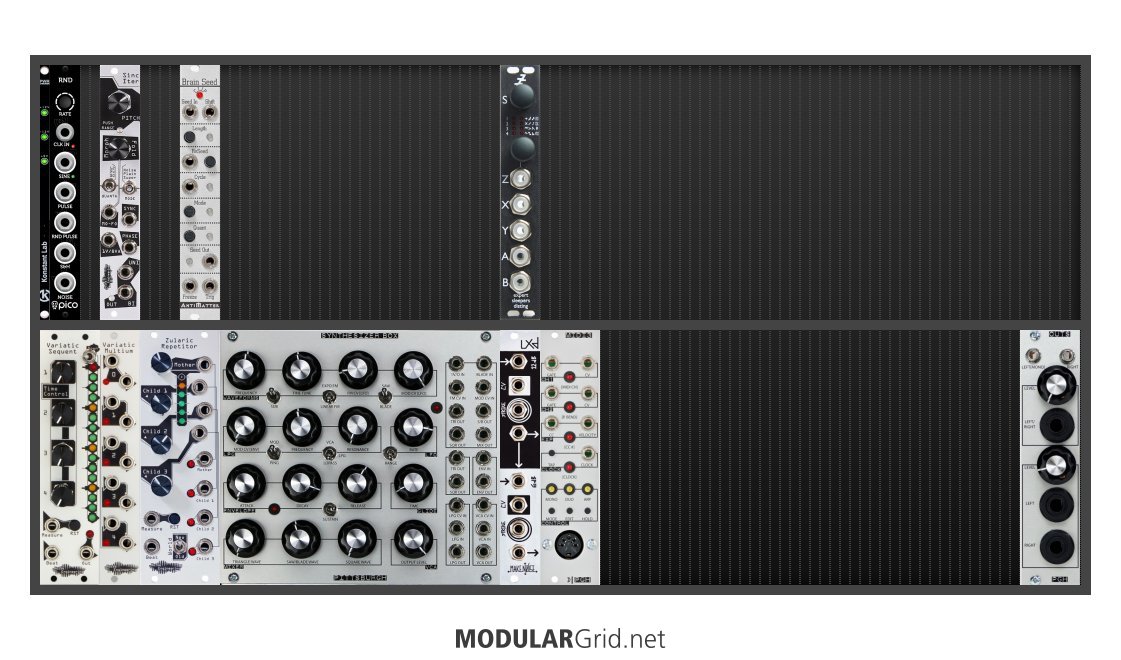Step 1: Take that Model D out of the cab. It has its own skiff with power...and Eurorack cabs, when you start looking at the cost per space they have, are things that should be filled with things that require being in there. As an example, let's look at this just in the math...
A Make Noise CV Bus case costs $660 at Perfect Circuit. Now, this has 208 3u spaces (I'm not counting the 1u row here, as Tony's already filled that for everyone). 660/208 = 3.17(ish). The Model D is 70 hp (if you don't add on any of several Model D expanders that're out there specifically for allowing access to the rest of the patchpoints once you case it). This means that if you put this synth (that comes with a free powered case) in your Eurorack cab, it will take a roughly $210 chunk out of that case, thereby making your Model D cost $509. Mmmmmm...nope. Bad idea all around.
Step 2: You should be able to add the middle 1u tier by editing this rack...and you want to, so that you can get a very clear idea of how signal flows in the build are going to work. Otherwise, you're missing out on one of the more useful aspects of MG.
Next...now, there's A LOT missing here. There's no VCAs outside of the HexMix, for starters; you'll need more of them, particularly for manipulating CV/mod levels instead of just audio. There's no output module to bring your levels down to line level after the HexMix. I don't see any modulation sources aside of one lonely LFO and the Peaks clone. There's no filtering in here, either. All of these are pretty crippling omissions.
Another problematic thing is the two rather sizeable drum modules taking up a 26 hp chunk of your upper row while only giving you the useful output of a kick and a hat. That's not a good use of space, especially given that there are loads of similar modules out there that take up far less room. But as someone who's been doing live electroacoustic performance work since the beginning of the 1980s, I frankly wouldn't put ANY drum machine stuff in the...well, the thing that's not a drum machine. If you want electronic percussion, then use a drum machine; the argument for doing so is rather similar to the point behind taking the Model D out of the case. If the two modules cost $478 (which they do in the USA) together, and an Arturia DrumBrute costs $449 (which then gives you many more percussion voices, onboard syncable sequencing, a dedicated VCF, etc etc)...well, the choice is pretty straightforward, I think.
Remember: you're building this in a case with two rows of 104 hp each. Given that you have very limited space, your first consideration in creating a build here on MG is to consider what does not belong in the case. Then after that, consider what must be in the case in order to have a workable instrument. My advice would be to trash this build, for starters, but not before making note of a few specific things that do work, such as having the Rene, Plaits clone, HexMix and the Clouds clone in the next iteration. Then after studying those four modules and what they work best with (and fyi, that's the original Rene...the mk.II version has the ability to integrate with the Make Noise Tempi, with the result being a far more capable sequencing environment, this being one example of what I'm getting at here), start branching out from there BUT not before doing some studies of other classic modular systems. See what the various engineers figured out some 40-50 years ago in terms of necessary capabilities, signal flow and module layout, and so on. And also keep in mind that you should not be trying to build this successfully in one shot. A good build that works for years on end is one that's actually honed-down and refined over many iterations; otherwise, you risk building a very expensive and incapable money pit instead of a musical instrument. Constantly question everything as you do this...is this the right module choice?, does this layout make things flow better?, can I fit the same function into a tighter space?...these should be firmly in your mind while working this out. And how do I connect what I plan to use outside of the cab with what's INside the cab? There's a Keystep there...now, are there things on MG that play nicely with that controller (hint: there are) and what it can output?
No, it's not easy. And part of that is because this isn't cheap. Another problem comes from what I call the "sexy module syndrome"...the idea that, hey, THAT looks cool! I want it!...that always results in people leaving necessary yet UNsexy modules out of the build (like here!). Try seeing how boring you can make the build look. Perhaps make a mockup with all one brand of modules, then start whittling away at this, making substitutions, etc. And always avoid putting anything in the cab that can be done outside of the cab...multiples, for example. Buffered mults (when needed! as in, if you have more than five VCOs or thereabouts to run off of the same CV source) belong in the case. Passive mults, however, only belong in the case when you have room to spread out, which means you'd be dealing with a rather sizable build, not one this small. This is why multiple widgets exist, and stackcables, also. Consider: put a 2 hp passive mult at each end of each 3u row in this. Now, try and do this when the system's been filled up already with "function", meaning you now have to remove a total of 8 hp of that functionality. Not a good compromise of space.
Anyway, these are the sorts of things you've got to have in mind to eventually get to a workable result. Modular synthesis is 100% NOT a "throw stuff in box, connect wires, twist knobs, win!" sort of situation. Remember: you're considering spending several thousand dollars on this. You're going to want to do it right.



